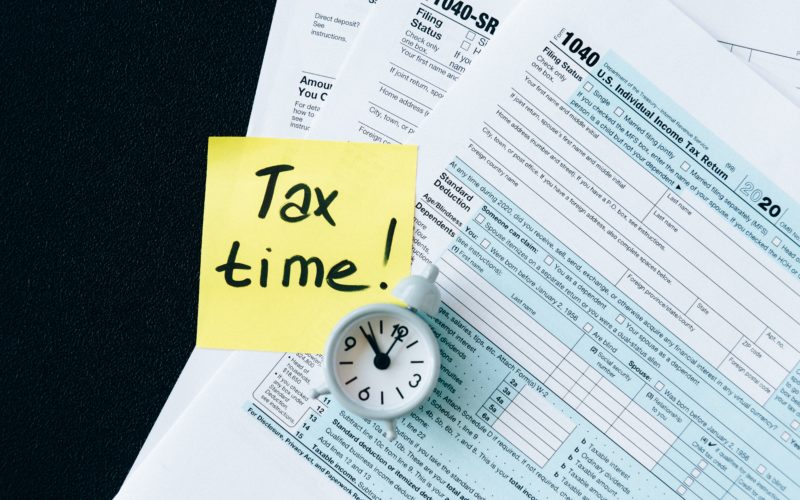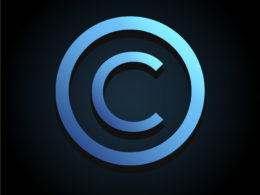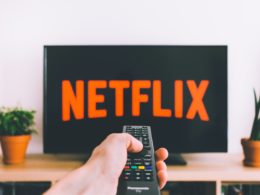City and state legislatures are taking on streaming giants like Netflix, Hulu, and Disney+ in an attempt to reap millions of dollars of tax revenue. They do so by imposing “video service fees” arguably justified by a company’s use of local infrastructure. According, the City of Lancaster, California tried to invoke California’s Digital Infrastructure and Video Competition Act (“DIVCA”) to charge Netflix and Hulu a fee of 5% of gross profits generated by customers within the municipality.1[1]Cal. Pub. Util. Code § 5810(b) (Deering 2021). The DIVCA states that video service providers, or providers that use public rights-of-way to broadcast their content, “shall pay as rent a franchise fee to the local entity in which service is being provided for the continued use of streets, public facilities, and other rights-of-way of the local entity in order to provide service.”2[2]Id.
On September 23, 2021, the Los Angeles Superior Court rejected Lancaster’s claims because neither Netflix nor Hulu uses public rights-of-way, like running wires over or under Lancaster streets, to bring their content to viewers.3[3]James Nani, Netflix, Hulu Win Challenge To Calif. City’s Video Fees, LAW360 (Sept. 23, 2021, 6:26 PM), https://www.law360.com/articles/1424455/netflix-hulu-win-challenge-to-calif-city-s-video-fees. Rather, they use pre-established infrastructure, such as wireless internet signals or cell phone towers.4[4]Id. This was a rare victory for the streaming services who have not fared as well in similar litigation brought in Missouri, Georgia and Illinois.
While video service fees were once a reliable source of income for cities like Lancaster, they also cut heavily into a company’s profits. Video service fees allow cities to take large percentages of a company’s total gross income in exchange for the company’s use of the city’s infrastructure. For example, by the second quarter of 2021, Netflix generated $7.3 billion in revenue.5[5]Julia Stoll, Revenue generated by Netflix from 1st quarter 2013 to 2nd quarter 2021, STATISTA (July 2021), https://www.statista.com/statistics/273883/netflixs-quarterly-revenue/. If Netflix is considered a video service provider, it would be required to pay Lancaster $365 million in fees, as providers are required to pay up to 5% of their gross income under the DIVCA.6[6]James Nani, Netflix, Hulu Win Challenge To Calif. City’s Video Fees, LAW360 (Sept. 23, 2021, 6:26 PM), https://www.law360.com/articles/1424455/netflix-hulu-win-challenge-to-calif-city-s-video-fees.
Lawsuits of this nature are becoming increasingly common, given that more Americans are subscribed to streaming services than to traditional cable television.7[7]Chris Brantner, More Americans Now Pay For Streaming Services Than Cable TV, FORBES (Mar. 20, 2019, 4:13 PM), https://www.forbes.com/sites/chrisbrantner/2019/03/20/americans-now-pay-more-for-streaming-services-than-cable-tv/?sh=4dbcacc8fcdd. This change in consumer preference may lead to less income for cities and states. For example, in 2018, Creve Coeur, Missouri similarly sought to compel Netflix and Hulu to pay video service provider fees under Missouri’s Video Services Providers Act.8[8]Eriq Gardner, Netflix Tells Court It Isn’t a Video Service Provider, THE HOLLYWOOD REPORTER (Sept. 13, 2018, 3:48 PM), https://www.hollywoodreporter.com/business/business-news/netflix-tells-court-it-isnt-a-video-service-provider-1143229/. The city argued that excusing the streaming services from the requirements of the Act “deprives Missouri municipalities of much-needed revenue.”9[9]Id. In January 2021, the court rejected Netflix and Hulu’s motion to dismiss, noting that it considered the streaming services to be video services providers.10[10]Abraham Gross, Netflix, Hulu Lose Bids To Toss Mo. Video Provider Fee Case, LAW360 (Jan 4. 2021, 8:56 PM), https://www.law360.com/tax-authority/articles/1341305/netflix-hulu-lose-bids-to-toss-mo-video-provider-fee-case.
Moreover, in January 2021, three Georgia counties sued Netflix, Hulu, Disney, DirectTV, and Dish Network under Georgia’s Consumer Choice for Television Act, seeking more than $5 million in unpaid fees dating back to July 2007.11[11]O.C.G.A. § 36-76-1 (Lexis 2021); Gwinnett Cty., Ga. v. Netflix, Inc., No. 1:21-cv-21-MLB, 2021 U.S. Dist. LEXIS 146527 (N.D. Ga. Aug. 5, 2021). The Act requires “‘video service provider[s]’ either to acquire a state franchise from the Secretary of State for service areas in which they provide ‘video service’ or to negotiate directly with a municipal or county franchise authority.”12[12]Id. at *2. In August 2021, a federal court refused to hear the case, remanding it back to the Superior Court of Gwinnet County, Georgia.13[13]Id. at *21-22. This refusal may indicate both that federal courts are unprepared or unwilling to determine whether streaming services are liable for state video service fees and that they are content to leave streaming services to defend against liability in state courts.
In an attempt to collect service fees, some city and state legislatures have found loopholes by taxing their own residents. Chicago, for instance, created a streaming-specific tax, deemed the “Netflix tax,” which requires streaming services to pay the city a 9% tax on the revenue generated from the city’s residents who use streaming services.14[14]Irina Ivanova, Chicago becomes first city to collect “Netflix tax,” CBS NEWS (May 16, 2019, 7:39 PM), https://www.cbsnews.com/news/netflix-tax-chicago-becomes-first-municipality-to-collect-netflix-tax/. The streaming services, in turn, raise subscription prices for Chicago residents to compensate for the loss in profits resulting from the tax.15[15]Robert Niska, Chicago’s “Netflix Tax” – Spreading Due to COVID-19, ARIZ. ST. SPORTS & ENT. L.J. (Sept. 27, 2020), http://asuselj.org/chicagos-netflix-tax-spreading-due-to-covid-19/. Netflix determines who to tax by looking at billing information.16[16]Michael C. Bologna, Challenge to Chicago’s Netflix Tax Heads to Appeals Court, BLOOMBERG TAX (Sept. 17, 2019, 4:46 AM), https://news.bloomberglaw.com/daily-tax-report/challenge-to-chicagos-netflix-tax-heads-to-appeals-court. In response, Chicago residents sued the City of Chicago in Labell v. City of Chicago.17[17]Labell v. City of Chicago, 2019 IL App (1st) 181379. In its decision, the Appellate Court of Illinois allowed the tax to continue, noting that it did not violate the federal Internet Tax Freedom Act (the “ITFA”).18[18]Internet Tax Freedom Act, P.L. 105-277, § 1100, 112 Stat. 2681-719 (1998). The ITFA “prohibits a state from imposing discriminatory taxes on electronic commerce,” which promotes consumer welfare and regulates online purchases.19[19]Labell, 2019 IL App. at 8. The court reasoned that the ITFA was not violated because streaming services are not classified as “commerce” in the same way that actions like purchasing tickets online for “live cultural performances” are.20[20]Id.; see also Charles Capouet, Illinois Appellate Court Upholds Chicago Streaming Tax, JDSUPRA (Oct. 7, 2019), https://www.jdsupra.com/legalnews/illinois-appellate-court-upholds-38552/.
In March 2020, the Illinois Supreme Court affirmed this decision,21[21]Labell v. City of Chicago, 2020 Ill. LEXIS 314. which led the state legislature to propose a similar statewide tax.22[22]Vincent Caruso, Illinois Bill Would Expand Chicago’s ‘Netflix Tax’ Statewide, ILLINOIS POLICY (Mar. 27, 2019), https://www.illinoispolicy.org/illinois-bill-would-expand-chicagos-netflix-tax-statewide/. With more than half of states now charging a tax of this nature, Netflix added the following disclaimer on its website: “tax rates can vary by country, state, territory and city, and are based on the applicable rate at the time of your Netflix charge. These amounts can change over time with local tax requirements.”23[23]Greg Iacurci, The Netflix and Spotify tax: States are making streaming services more expensive, CNBC (Feb. 24, 2020, 8:00 AM), https://www.cnbc.com/2020/02/24/states-are-imposing-a-netflix-and-spotify-tax-to-raise-money.html; Taxes on your Netflix subscription, NETFLIX, https://help.netflix.com/en/node/50068; see also Heather Morton, Statewide Video Franchising Statutes, NATIONAL CONFERENCE OF STATE LEGISLATURES (May 31, 2019), https://www.ncsl.org/research/telecommunications-and-information-technology/statewide-video-franchising-statutes.aspx.
Some streaming services have taken to lobbying in the hope of dissuading lawmakers from implementing such policies. For example, shortly after the introduction of Disney+, Disney attempted to persuade Florida lawmakers to rescind the state’s current policy, which earns Florida $200 million in revenue each year.24[24]Jason Garcia, After launching Disney Plus, Disney is lobbying Florida lawmakers to cut taxes on streaming video, ORLANDO SENTINEL (Jan. 29, 2020) https://www.orlandosentinel.com/news/os-ne-disney-lobbying-disney-plus-tax-20200129-rczbllax5jf65ig43uatnnzzqy-story.html. The implementation of state video service taxes is a particularly sensitive and pressing topic for streaming services. According to KPMG, a financial consulting firm, “when it comes to paying for streaming services…there is a high degree of price sensitivity [among consumers],” which could be disastrous for companies whose futures depend on streaming revenue.25[25]Id.
Given the variability in state and case law, it is clear that the video service fee issue is far from settled. For instance, some courts initially blocked the video service tax, but later upheld its validity.26[26]Gail Cole, Netflix Exempt from Kentucky Taxes, AVALARA (Sept. 25, 2015), https://www.avalara.com/taxrates/en/blog/2015/09/netflix-exempt-from-kentucky-taxes.html; Stephen P. Kranz, Mary Kay McCalla Martire, & Richard C. Call, Kentucky to Begin Taxing Video Streaming Services under Telecom Tax, LEXOLOGY (May 24, 2019), https://www.lexology.com/library/detail.aspx?g=adc83957-af44-457f-95af-35a0b80314d3. As state legislatures continue to adopt these tax policies, individual state courts will be tasked with determining their fate. It is unlikely that a unified approach will emerge in the near future on whether streaming services are subject to such taxes and, if so, how best to implement such policies. The increasing popularity of streaming and dependence on technology for entertainment, however, may encourage cities and states to continue to look for loopholes to hold streaming services liable for otherwise lost revenue, perhaps through passing laws, seeking alternative avenues of revenue, or lobbying for state-wide action.
Written by: Talia Balakirsky
Talia is a 2023 J.D. Candidate at Brooklyn Law School
1 Cal. Pub. Util. Code § 5810(b) (Deering 2021).
2 Id.
3 James Nani, Netflix, Hulu Win Challenge To Calif. City’s Video Fees, Law360 (Sept. 23, 2021, 6:26 PM), https://www.law360.com/articles/1424455/netflix-hulu-win-challenge-to-calif-city-s-video-fees.
4 Id.
5 Julia Stoll, Revenue generated by Netflix from 1st quarter 2013 to 2nd quarter 2021, Statista (July 2021), https://www.statista.com/statistics/273883/netflixs-quarterly-revenue/.
6 James Nani, Netflix, Hulu Win Challenge To Calif. City’s Video Fees, Law360 (Sept. 23, 2021, 6:26 PM), https://www.law360.com/articles/1424455/netflix-hulu-win-challenge-to-calif-city-s-video-fees.
7 Chris Brantner, More Americans Now Pay For Streaming Services Than Cable TV, Forbes (Mar. 20, 2019, 4:13 PM), https://www.forbes.com/sites/chrisbrantner/2019/03/20/americans-now-pay-more-for-streaming-services-than-cable-tv/?sh=4dbcacc8fcdd.
8 Eriq Gardner, Netflix Tells Court It Isn’t a Video Service Provider, The Hollywood Reporter (Sept. 13, 2018, 3:48 PM), https://www.hollywoodreporter.com/business/business-news/netflix-tells-court-it-isnt-a-video-service-provider-1143229/.
9 Id.
10 O.C.G.A. § 36-76-1 (Lexis 2021); Gwinnett Cty., Ga. v. Netflix, Inc., No. 1:21-cv-21-MLB, 2021 U.S. Dist. LEXIS 146527 (N.D. Ga. Aug. 5, 2021).
11 O.C.G.A. § 36-76-1 (Lexis 2021); Gwinnett Cty., Ga. v. Netflix, Inc., No. 1:21-cv-21-MLB, 2021 U.S. Dist. LEXIS 146527 (N.D. Ga. Aug. 5, 2021).
12 Id. at *2
13 Id. at *21-22
14 Irina Ivanova, Chicago becomes first city to collect “Netflix tax,” CBS News (May 16, 2019, 7:39 PM), https://www.cbsnews.com/news/netflix-tax-chicago-becomes-first-municipality-to-collect-netflix-tax/.
15 Robert Niska, Chicago’s “Netflix Tax” – Spreading Due to COVID-19, ARIZ. ST. SPORTS & ENT. L.J. (Sept. 27, 2020), http://asuselj.org/chicagos-netflix-tax-spreading-due-to-covid-19/.
16 Michael C. Bologna, Challenge to Chicago’s Netflix Tax Heads to Appeals Court, Bloomberg Tax (Sept. 17, 2019, 4:46 AM), https://news.bloomberglaw.com/daily-tax-report/challenge-to-chicagos-netflix-tax-heads-to-appeals-court.
17 Labell v. City of Chicago, 2019 IL App (1st) 181379.
18 Internet Tax Freedom Act, P.L. 105-277, § 1100, 112 Stat. 2681-719 (1998).
19 Labell, 2019 IL App. at 8.
20 Id.; see also Charles Capouet, Illinois Appellate Court Upholds Chicago Streaming Tax, JDSupra (Oct. 7, 2019), https://www.jdsupra.com/legalnews/illinois-appellate-court-upholds-38552/.
21 Labell v. City of Chicago, 2020 Ill. LEXIS 314.
22 Vincent Caruso, Illinois Bill Would Expand Chicago’s ‘Netflix Tax’ Statewide, Illinois Policy (Mar. 27, 2019), https://www.illinoispolicy.org/illinois-bill-would-expand-chicagos-netflix-tax-statewide/.
23 Greg Iacurci, The Netflix and Spotify tax: States are making streaming services more expensive, CNBC (Feb. 24, 2020, 8:00 AM), https://www.cnbc.com/2020/02/24/states-are-imposing-a-netflix-and-spotify-tax-to-raise-money.html; Taxes on your Netflix subscription, Netflix, https://help.netflix.com/en/node/50068; see also Heather Morton, Statewide Video Franchising Statutes, National Conference of State Legislatures (May 31, 2019), https://www.ncsl.org/research/telecommunications-and-information-technology/statewide-video-franchising-statutes.aspx.
24 Jason Garcia, After launching Disney Plus, Disney is lobbying Florida lawmakers to cut taxes on streaming video, Orlando Sentinel (Jan. 29, 2020) https://www.orlandosentinel.com/news/os-ne-disney-lobbying-disney-plus-tax-20200129-rczbllax5jf65ig43uatnnzzqy-story.html.
25 Id.
26 Gail Cole, Netflix Exempt from Kentucky Taxes, Avalara (Sept. 25, 2015),https://www.avalara.com/taxrates/en/blog/2015/09/netflix-exempt-from-kentucky-taxes.html; Stephen P. Kranz, Mary Kay McCalla Martire, & Richard C. Call, Kentucky to Begin Taxing Video Streaming Services under Telecom Tax, Lexology (May 24, 2019), https://www.lexology.com/library/detail.aspx?g=adc83957-af44-457f-95af-35a0b80314d3.




